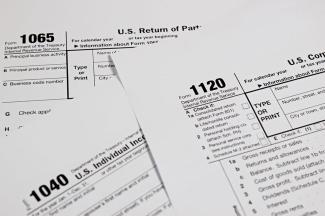Financial fraud and white-collar crime are serious offenses that can have a significant impact on businesses, individuals, and society as a whole. As a result, there is a growing demand for professionals who specialize in investigating and preventing these types of crimes. In this blog, we will explore the role of a professional who specializes in investigating financial fraud and white-collar crime, including their skills, responsibilities, and qualifications.
Skills of a Financial Fraud Investigator
A financial fraud investigator is responsible for identifying and preventing fraudulent activities, which requires a wide range of skills and knowledge. These skills include:
-
Financial Acumen: A financial fraud investigator must have a deep understanding of financial principles and accounting practices. This includes knowledge of financial statements, auditing procedures, and financial analysis.
-
Analytical Skills: A financial fraud investigator must be able to analyze large amounts of data and identify patterns that may indicate fraudulent activity. This requires strong analytical skills and attention to detail.
-
Communication Skills: A financial fraud investigator must be able to communicate complex financial information to others in a clear and concise manner. This includes writing reports, presenting findings to management, and testifying in court.
-
Legal Knowledge: A financial fraud investigator must have a solid understanding of the legal system, including criminal law, civil law, and regulatory requirements.
Responsibilities of a Financial Fraud Investigator
The primary responsibility of a financial fraud investigator is to identify and prevent fraudulent activities. This includes:
-
Conducting Investigations: A financial fraud investigator must conduct thorough investigations into suspected fraudulent activity. This involves collecting and analyzing financial data, interviewing witnesses, and gathering evidence.
-
Reporting Findings: A financial fraud investigator must prepare detailed reports outlining their findings and conclusions. These reports may be used in legal proceedings or presented to management.
-
Collaborating with Others: A financial fraud investigator must work closely with other professionals, including accountants, attorneys, law enforcement officials, and regulatory agencies.
-
Providing Training: A financial fraud investigator may also be responsible for providing training to others on how to identify and prevent fraudulent activities.
Qualifications of a Financial Fraud Investigator
Becoming a financial fraud investigator typically requires a combination of education, experience, and certification. Some of the qualifications that are commonly required include:
-
Education: A bachelor's degree in accounting, finance, or a related field is often required. Some employers may prefer candidates with a master's degree or other advanced education.
-
Experience: Most financial fraud investigators have several years of experience in accounting, auditing, or law enforcement. Some employers may also require experience in a specific industry, such as banking or healthcare.
-
Certification: Many financial fraud investigators hold professional certifications, such as Certified Fraud Examiner (CFE) or Certified Public Accountant (CPA). These certifications demonstrate expertise in the field and may be required by some employers.
Conclusion
Financial fraud and white-collar crime are serious offenses that require specialized skills and knowledge to investigate and prevent. A financial fraud investigator plays a critical role in identifying and stopping fraudulent activities, and their work can have a significant impact on businesses, individuals, and society as a whole. By possessing a combination of financial acumen, analytical skills, legal knowledge, and communication skills, and meeting the necessary qualifications, these professionals can help prevent and detect financial fraud and white-collar crime.



